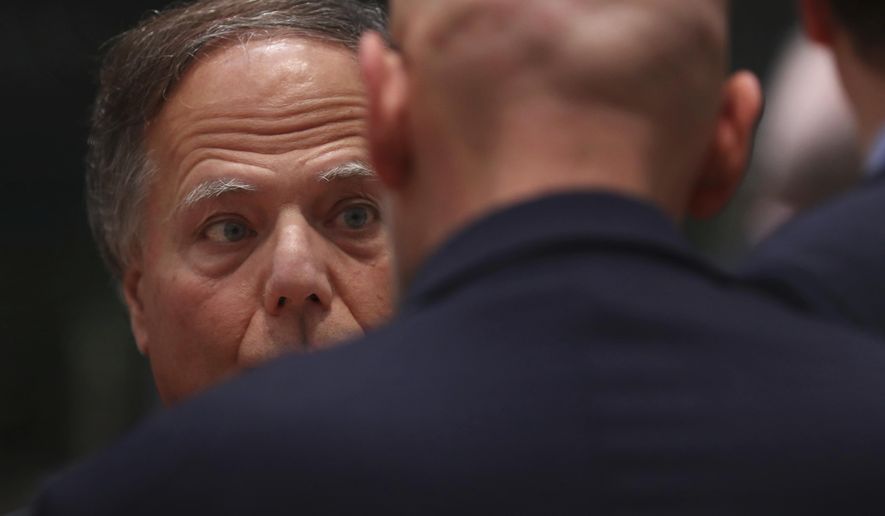BRUSSELS (AP) - The European Union on Monday prolonged sanctions against Congolese President Joseph Kabila’s chosen successor just two weeks before a historic election in the resource-rich Central African country.
EU headquarters said that travel bans and asset freezes will be renewed for a year against Congo’s ruling party candidate Emmanuel Ramazani Shadary and 13 other people.
Shadary was sanctioned by the EU last year for obstructing Congo’s electoral process and a crackdown against protesters angry over the long-delayed vote.
The decision, taken by EU foreign ministers in Brussels, could be reviewed “in the light of and following” the elections, scheduled for Dec. 23.
It could be Congo’s first peaceful, democratic transfer of power. The opposition fears that Kabila , who has ruled since 2001, will assert power behind the scenes if Shadary wins.
Kabila’s adviser said the EU move is tantamount to election meddling.
“We have said it time and again. We believe those sanctions are politically motivated they are arbitrary and they are unjust,” said Kikaya Bin Karubi, Kabila’s special adviser. “And even more so, to renew them today, two weeks before the elections, what the European Union is doing is actually interfering in our electoral process.”
Kikaya said the opposition is using this renewal politically, telling voters that they can’t elect a president who can’t travel to Europe.
“That’s a big problem for us. It’s an extra-continental organization interfering into our internal affairs. And that happens at a time when even the African Union, their partner organization, has implored them not to do this,” he said. “All we know is that if Mr. Shadary is elected president of the Congo, he will be president of the Democratic Republic of Congo and not the president of The European Union.”
Congo’s foreign minister has previously raised the sanctions issue with EU foreign policy chief Federica Mogherini. He told reporters he had asked that the “illegal” sanctions be lifted on Shadary before the election, or at least be suspended for a “probationary period” as a compromise.
But Human Rights Watch also wrote to Mogherini late last month, appealing to her to ensure that the sanctions are renewed and even expanded.
“Less than one month before the scheduled election, the repression continues, those responsible for past abuses have not been held to account, and the enabling environment for credible elections does not exist,” the rights group wrote.
___
Carley Petesch in Kinshasa, Congo contributed to this report.




Please read our comment policy before commenting.